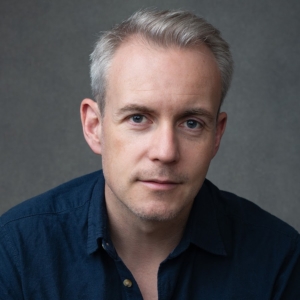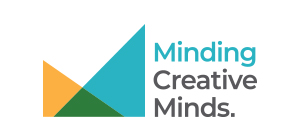Tips: Developing and managing a creative career with Andrew Macklin
 1. Avoid comparing yourself to people in the height of their careers.
1. Avoid comparing yourself to people in the height of their careers.
We all tend to find comparisons in order to judge ourselves. We tend not to look for
people at our level of skill/ability, instead we look at people in the height of their
careers. If you find yourself wanting to compare your career to others, keep
comparisons to people who are at your current level of skill/ability or just above it.
2. Look at the things that are working well and build on them.
Our careers as creatives move in spirals as opposed to a singular, linear trajectory. It’s
natural in our careers to not know what’s next. We don’t have conventional careers;
there’s no fully predictable trajectory.
If we don’t know where we are in our careers, we can tend to feel a bit lost. It’s
difficult to track a creative career, i.e., you’re always an artist rather than progressing
from role to role, up a ladder, like people do in other sectors. We’ll go through
periods of not knowing and knowing.
What have you done so far in your career? Map out where you started in your career
to where you are now on your career journey. Consider the steps you took from the
start of your career to where you are now. Focus on the approaches & strategies that
worked for you and build upon them.
3. Think creatively about your vision of career success.
When considering our career development, we can often put the cart before the
horse; focusing on our professional development at the expense of our personal
development. Be creative when thinking of your vision of your career's future. Create
a clear picture of what you’re moving towards and consider the following themes:
● lifestyle
● impact
● finance
● emotion
Lifestyle
What do you want your lifestyle to look like on a day-to-day basis? When do you
want to work? How much free time do you want? Getting clarity on that will help
you as you continue to construct your career. It can inform your decision-making re.
jobs you're offered and the kind of career you’re moving towards.
Social Impact
Think about the impact you want your career to have. How do you want your partner
to feel living with an artist? How do you want your family to feel? You can spend 20
years being a highly-paid writer but could find yourself doing so in a way that’s
negatively impacting upon you and the people around you. Be more intentional
about what you'd like your impact to be from the outset.
Finance
Constantly working in a way that makes us feel as if we’re not being appreciated
financially can lead to burnout.
What financial figure are you happy and excited to work for? What experience do
you already have and what will you be delivering to make you feel confident asking
for that figure? It might feel out of reach but thinking about this gives you
something to aim for.
Emotional
Consider what emotional experience you’d like to have on a day-to-day basis as a
successful creative. This is the theme that can make artists leave the profession. It’s
important that we feel engaged and excited in our careers. Are fun and playfulness
important to you in your work? If you’ve decided, “yes”, then use this knowledge to
filter out work you know will be lacking fun and playfulness. Again, considering this
will help to guide your career and the jobs you accept or don’t accept.
4. Work backwards from a career goal to get a step-by-step trajectory.
For example, maybe your goal is winning an Oscar for your documentary. What’s the
preceding step to that goal? Perhaps it’s getting into an international festival. What
step precedes that? Perhaps, getting your work into a local film festival. What step
goes before that? Finishing the film! Now you have a step-by-step career outline.
– Finish a feature documentary
– Get it into a local film festival
– Get it into an international film festival
– Win an Oscar
These are stepping stones creatively drawn from your personal ideal. By using an
approach like this, you can begin to self-direct your career. Alternatively, you can
work forward from where you are now by considering which stepping stone is likely
to lead you one step in the right direction. What is the next step that’ll make you feel
like you’re making progress? Take the next step in that career you’ve mapped out
and break it down into practical steps. Break down one stepping stone into lots of
smaller steps.
Thinking backwards from your ideal career goal helps you to side-step the error of
basing your future potential on your current knowledge and ability. We learn and
acquire skills over time. What might be out of your reach today may not be in the
near future. Don’t forget this when mapping out your career.
5. Make better use of chance encounters and situations.
Let’s be honest, the average creative career hasn’t been cleverly plotted out. So
much randomness comes into our careers. In fact, some studies put 60% of career
success down to chance, with 40% down to strategy. If 60% of your career is random,
how can you feel satisfied and fulfilled? The answer is to make better use of chance.
Or happenstance as it is known.
Staying open minded and flexible will enable you to be open to unplanned
opportunities and to make the most of them. Don’t become blinkered by rigidly
holding onto unwavering career plans and goals. Make peace with knowing that
unplanned events will happen. Don’t fall into an avoidance approach. In every work
situation/meeting, consider, “How can I use this?”
6. When you meet new people, don’t talk about your past work, talk about
now.
If anyone asks, “What do you do for a living?”, respond with what you’re passionate
about or what project you’re currently working on and why it’s important to you.
When people know where we’re going, it’s easier for them to connect with us.
Talking about the past gives people context, but it’s not going to give the other
person much of an idea of the type of work you see yourself doing next.
Help new acquaintances make a connection with you. Talk about the current
stepping stones you’re working on. Your new acquaintance might know someone
who could help you.
Never wait for finely tuned plans to develop before putting the wheels in motion.
Careers are social and built on relationships. The wider you can spread your network,
the better.
7. Try a solution-focused approach.
When we’re faced with a problem, our minds typically try to fix the problem. A
solution-focused approach focuses on where we want to end up instead.
Google Maps is a great example of a solution-focused application. It won’t try to fix
the traffic or the dodgy one-way systems. It focuses on getting you to your
destination, providing you with multiple options for doing so. Maybe you can get to
your destination without having to fix the problem you're faced with.
A solution-based approach is also a creative approach. It involves throwing new
ideas around and generating as many possible options as your brain will allow.
Focusing on the problem often lowers your mood. A solution-based approach is
fundamentally about what’s wanted and what’s working. It’s focused towards
progress and breeds hope.
Know that while you can’t change everything, in most situations you have some level
of influence. Find it and use it.
In an unpredictable creative career with an unpredictable future, solution-based
focused approaches can be really helpful.
